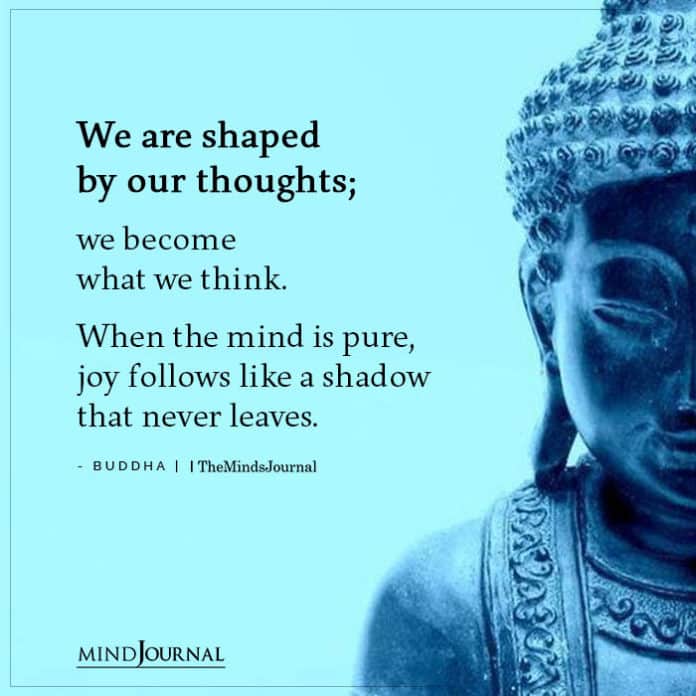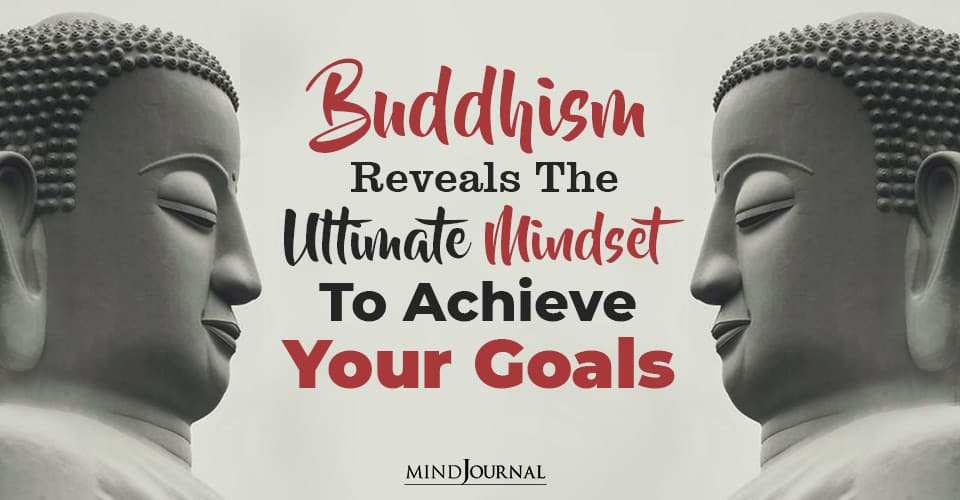Are you consistently failing to reach your goals? Do you keep setting new goals and then give up on them after a short span? Buddhism reveals the ultimate mindset to achieve your goals.
What happens is the sudden outburst of enthusiasm and motivation, to set big fat goals, and create a grand life for yourself.
Slowly after a while, the motivation goes down and you tend to feel that your life can’t be better. Soon you get back to where you were before setting goals.
If your life is like this, then it’s time to learn the teachings of Buddhism about setting goals and living the life you want.
Buddhism is gaining popularity all over the world because it helps you bring together a focus on living the moment with making progress in achieving your goals.
Read on to know the 5 steps to free yourself from the destructive nature of goal mindset and actually make your dreams come true. The approach explained in the post will help you make progress in achieving your goals without stress and anxiety.
1. Know why people struggle to achieve goals
It is too easy to set goals with deadlines and plan the necessary actions to take. But, we focus on the outcomes, set unrealistic goals, and underestimate completion time. Even when you set realistic goals, most of the time your focus is on the future.
You are neither living in the present nor enjoying the journey, which adds to stress and brings forth anxiety.
Your deadlines give you tension, you are racing against time and keep reminding yourself that you are far from reaching goals. The more you worry, the more you lose your inner peace and fail to live in the moment. Eventually, you end up losing the motivation to take the required action to fulfil your goals.
And then you think of starting afresh and come up with new goals and action plans. The cycle continues with no fruitful results. You are just doing the same thing again and again while expecting different results, which is nothing but insanity in words of Albert Einstein.
Read 3 Powerful Methods To Help Create The Results You Want And Succeed Faster
2. Know what are your core values
Core values are the fundamental beliefs you hold about your life, that guide your intentions, decisions and actions, and help you find purpose in life. Values are things like adventure, loyalty, respect, security, passion. Therefore, before setting goals you must know what your core values are.
Ask yourself what is important to you? What do you want from life?
This leads to clarity and self-awareness.
“when your values are clear to you, making decisions becomes easier.” – Roy E. Disney
Not only decision-making, but core values ensure alignment to your path help you live authentically.
That said, you and only you can identify your core values and no one can decide your values for you. Every life on this earth is unique, each and every individual has his own struggles and experiences. So, Google can never answer you what to do in life.
In Buddhism, you have to engage in self-inquiry if you want to figure out your life.
Read 10 Self-Growth Questions You Should Ask Yourself Every Day
3. Adopt A Value Mindset
Once you have identified and established your core values, you need to shift your focus from goal mindset to value mindset.
Be crystal clear about what you want to achieve and why. Think about your goals again and check if they are in alignment with your values.
Are you sure about the outcomes? Will you be happy if you achieve your goals?
Practising this value mindset will motivate you to focus on the feeling that comes in the future when you achieve your goals instead of focusing on the future and your specific goals.
Here comes the power of visualization!!!
You are already crafting a picture in your mind that you have fulfilled your goals, which lifts your mood. Such imagination helps you turn dreams and goals into reality and reduces fear and anxiety. Because you’re aligning your current mental state with the reality of having already achieved the goal.
Have you adopted the value mindset?
What’s next?
4. See and feel your vision every day
You will be glad to know that visualization is scientifically proven. Visualizing an action stimulates the same brain regions that are stimulated when we actually perform that same action.
Now onwards, spend some time to visualize the future you’re creating, and then incorporate this into your daily practices.
It’s like a meditation where you can incorporate anything in your visualization – What would be your dream job? In what way you are adding value in the lives of other people? What kind of social life you’re maintaining? How your business conference would look like? How does your new average day look like?
At the end of the day, sit and analyze as to which parts of your day are matched with the value-based future that you’re creating.
Eventually, you will tend to live more in the present moment. Over time, the future you want to create and the present will be the one and the same. And this relates to mindfulness.
5. Practise mindfulness
Mindfulness in Buddhism is about being intensely aware of what you’re feeling in the moment, without judgment.
Setting goals, missing deadlines or messing up with plans creates stress, irritation, and aggression. And the gap between the future you are trying to create and the present you are living increases.
Read How Your Brain Changes After Meditating for One Year
With goal mindset, your entire focus is on what you need to achieve to be happy. But, with a value mindset and power of visualization, you enter the state of already being there. So, you no more focus on what you don’t have.
Practice mindfulness, live the moment, notice what you have, all the right things in your life – and be grateful to all the simple, little things that make you happy.
Using this approach, you can relax your body and mind. Visualize your inner self each day and make choices based on “who you are” instead of the actions that should be taken to achieve specific results.

Are you ready to make your dreams happen?
- Identify and establish your core values
- Write a vividly detailed description of your new average day.
- Each day, set an intention for how you want to feel and who you want to be.
- Continue to monitor and review
We are cursing 2020 for COVID 19 and lockdown blues. But, the sad year is finally coming to an end. Embrace these teachings of Buddhism and value mindset to achieve your goals while living mindfully in the present.
Let’s make the new year the year of victory.











Leave a Reply